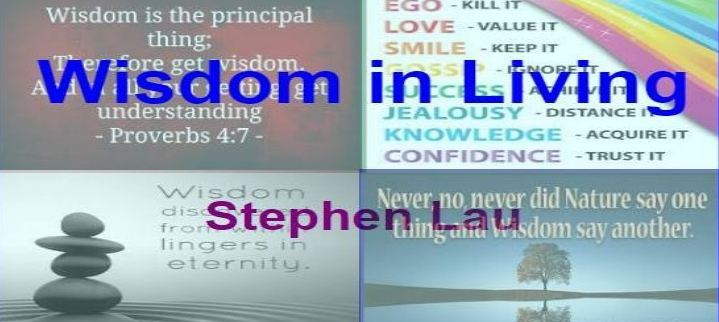As you age, your
memory may deteriorate. But it doesn't have to be that way. You can still have
a sharp memory if you improve memory skills.
Memory has everything
to do with brain health. If you don't have a healthy brain, how can you have a
good memory? A good memory is an ingredient of wisdom. Therefore, if you want
to be wise, have a good memory, But a good memory requires good basic memory skills.
So, improving memory skills goes a long way to improving memory, despite the
aging process.
Good memory skills are
important to having a good memory, just as a good mechanic also needs good
tools. Memory skills are your tools to enhance your brain processing, which is
what memory is all about. Memory involves processing of information that you
already have, and capability to recall it at will. Such processing requires
utilization of your senses: sight, touch, smell,
or a combination of some of these senses. The capability to utilize
these senses means you are not only being aware of
them, but also paying attention to them. As a result, they
become memory tools for you, so that you can retrieve your
information later without any problem.
All disciplines in the
brain have some connection with memory, for example, music,
writing, and art, among others.
 (1) According to some
scientific research, music has the capacity to change your neuron activity.
Music therapists believe that different sounds from different instruments have
different impact on different body organs in the physical body. Specifically,
they are capable of breaking blockages in energy flow (the Chinese call it
"qi"), which courses through the meridian channels in the body to
bring oxygen and nutrients to different parts of your body. Nowadays, there is
"psychoacoustics" which is the study of sound on the conscious mind
through the use of music. Scientists have used MP3 music and subliminal messages for hypnosis to awaken the subconscious mind to
improve memory, enhance learning, heal sleep problems, increase
self-confidence, just to name a few possibilities. Music, of course, has to do
with sound. Learn to play a musical instrument to boost your brain
power, concentration, and to develop motor skills.
(1) According to some
scientific research, music has the capacity to change your neuron activity.
Music therapists believe that different sounds from different instruments have
different impact on different body organs in the physical body. Specifically,
they are capable of breaking blockages in energy flow (the Chinese call it
"qi"), which courses through the meridian channels in the body to
bring oxygen and nutrients to different parts of your body. Nowadays, there is
"psychoacoustics" which is the study of sound on the conscious mind
through the use of music. Scientists have used MP3 music and subliminal messages for hypnosis to awaken the subconscious mind to
improve memory, enhance learning, heal sleep problems, increase
self-confidence, just to name a few possibilities. Music, of course, has to do
with sound. Learn to play a musical instrument to boost your brain
power, concentration, and to develop motor skills.
(2) Writing is another
discipline which can improve memory skills, and hence memory. Writing a
journal, a diary, or even writing a blog, can boost memory power, because in writing,
or rather recollecting one thought at a time and word by word, may help you
with organization and logic. In addition, as you are jotting down the words,
the movements of your hands (as you type or write), as well as the sight of the
words in front of you will reinforce your memory. Writing is a good example of
using sight to improve memory skills.
(3) Art is another
field which extensively uses your extraordinary senses, such as visual in
drawing, or touch in sculpture.
As you get older, your
brain shrinks a bit, and that is natural. The good news is that your can recoup
your losses. As a matter of fact, you have about 100 billion brain cells, and
you have used up only five percent of your brain cells. Tap into them to
improve your memory. Use it or lose it!
Be wise with a good
memory!
Awaken Your
Photographic Memory is a
state-of-the-art memory system to improve your memory.
Stephen Lau
Copyright©2018 by Stephen Lau







